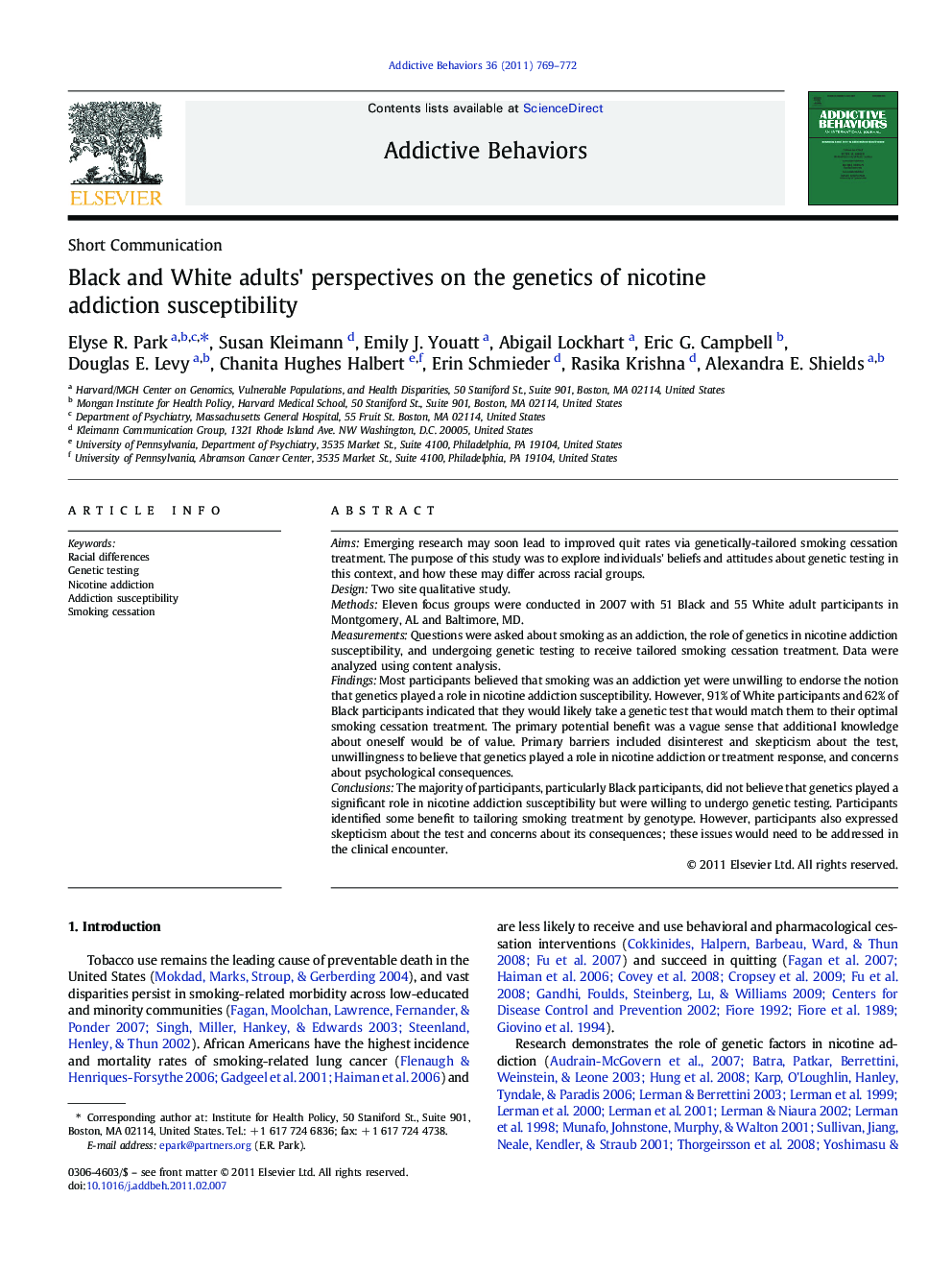| کد مقاله | کد نشریه | سال انتشار | مقاله انگلیسی | نسخه تمام متن |
|---|---|---|---|---|
| 899854 | 915404 | 2011 | 4 صفحه PDF | دانلود رایگان |

AimsEmerging research may soon lead to improved quit rates via genetically-tailored smoking cessation treatment. The purpose of this study was to explore individuals' beliefs and attitudes about genetic testing in this context, and how these may differ across racial groups.DesignTwo site qualitative study.MethodsEleven focus groups were conducted in 2007 with 51 Black and 55 White adult participants in Montgomery, AL and Baltimore, MD.MeasurementsQuestions were asked about smoking as an addiction, the role of genetics in nicotine addiction susceptibility, and undergoing genetic testing to receive tailored smoking cessation treatment. Data were analyzed using content analysis.FindingsMost participants believed that smoking was an addiction yet were unwilling to endorse the notion that genetics played a role in nicotine addiction susceptibility. However, 91% of White participants and 62% of Black participants indicated that they would likely take a genetic test that would match them to their optimal smoking cessation treatment. The primary potential benefit was a vague sense that additional knowledge about oneself would be of value. Primary barriers included disinterest and skepticism about the test, unwillingness to believe that genetics played a role in nicotine addiction or treatment response, and concerns about psychological consequences.ConclusionsThe majority of participants, particularly Black participants, did not believe that genetics played a significant role in nicotine addiction susceptibility but were willing to undergo genetic testing. Participants identified some benefit to tailoring smoking treatment by genotype. However, participants also expressed skepticism about the test and concerns about its consequences; these issues would need to be addressed in the clinical encounter.
Research Highlights
► Many participants were doubtful that genetics played a role in nicotine addiction.
► Black participants, in particular, did not believe in the role of genetics.
► Most participants would take a genetic test to determine optimal tobacco treatment.
► Black participants were less willing than White participants to take the test.
► Skepticism about the test and concerns about its consequences were test barriers.
Journal: Addictive Behaviors - Volume 36, Issue 7, July 2011, Pages 769–772